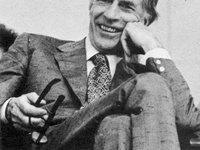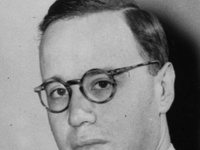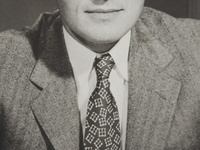
McGeorge Bundy, a professor in the Department of Government, served as the Dean of the Faculty of Arts and Sciences from 1953 to 1961, when he joined Kennedy’s administration as National Security Advisor. Bayley, who took a course on modern global politics taught by Bundy, recalls Bundy’s remarkably keen ability to seemingly do two tasks at once. “We were just amazed,” he said. “He clearly was extremely involved in the campaign and in John F. Kennedy and in politics and in everything,” Ballard said about the Dean.
Election season was in full swing, and students at Harvard and across the nation were passionately supporting a youthful candidate for president who spoke to them with eloquence and charisma, and who even carried a Harvard degree. Cambridge hosted heated debates, partisan speakers, and plenty of student volunteers distributing leaflets and voter registration information. Issues ranging from the candidates’ stances on national security to levels of political experience were discussed in classrooms and common rooms across campus.
Many current Harvard students might recognize this scene from 2008. But to students from an earlier era, these images conjure up memories of another campaign—the presidential election of 1960, when John F. Kennedy ’40 ran for president against Richard M. Nixon.
HARVARD FOR KENNEDY
According to polls taken by The Crimson in 1960, students and faculty leaned heavily in favor of Kennedy.
“He was young; he was charismatic. It looked like a new frontier,” said former Crimson editor Peter S. Britell ’63, echoing Kennedy’s campaign theme. “It was very, very inspirational.”
Among undergraduate and graduate really identified with the Kennedy campaign, even those who weren’t actively involved.”
At this point, many of those young people could not yet vote—the voting age wouldn’t be lowered from 21 to 18 for another ten years—but excitement still ran high among many non-voting students. Some sported buttons reading “If I Were 21, I’d Vote for Kennedy.”
Kennedy’s ties to the College also endeared him to Harvard students.
“It was not unusual in 1958 and 1960 to see his brother and mother and sister all over Harvard,” Smith said.
Just six days before the election, Kennedy—who served on the Crimson business board and swam on the varsity swim team during his undergraduate years—spoke via telephone connection from California to an overflowing crowd in Sanders Theater.
“You’re the only audience in the United States that can understand my accent,” he jested to the enthusiastic students.
CAMPUS TO CAMPAIGN TRAIL
Many students took action on their preference for one candidate or the other by volunteering for one of the campaigns.
Members of the Young Republicans handed out leaflets supporting Nixon in a local supermarket; the Harvard Young Democratic Club distributed flyers in the subway.
Supporters of both parties picketed polls to persuade undecided voters at the last minute, and a voter registration drive sought to sign students up to vote via absentee ballot in their home states.
Read more in News
Reduce, Reuse, Research?Recommended Articles
-
 Defacement and Dedication in Libraries
Defacement and Dedication in Libraries -
The Cards and How You Play ThemSo we’re left with a Democratic president whose domestic agenda is less ambitious than that of a Republican president from three decades ago and a Republican opposition that decries that same agenda as rank socialism.
-
 Harvard Introduces First Gen Ed Curriculum, Travels to Nixon's Kitchen Debate, and Hosts Olympic Soccer
Harvard Introduces First Gen Ed Curriculum, Travels to Nixon's Kitchen Debate, and Hosts Olympic Soccer -
 Remedying 'Social Evil' and 'Guilty' Liberal Journalists
Remedying 'Social Evil' and 'Guilty' Liberal Journalists -
 Scott Brown To Join Boston Law Firm
Scott Brown To Join Boston Law Firm -
Obama Goes Full NixonWhile those inside the White House wants to deify Obama as its “North Star,” the potentiality of corruption in his administration must not be overlooked. President Obama must proceed carefully if he doesn’t want to end up with an eerily Nixonian legacy of disgrace.
















